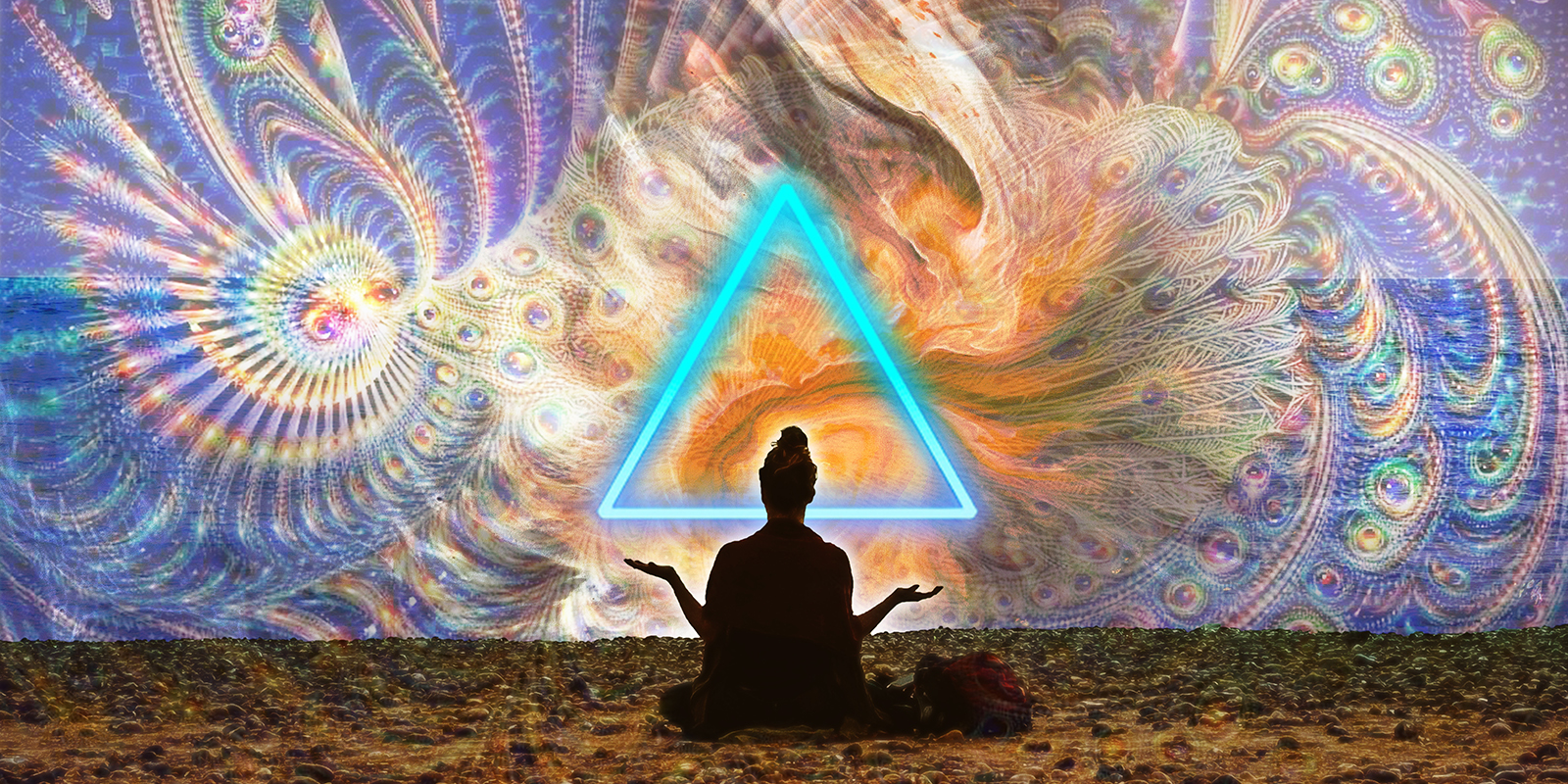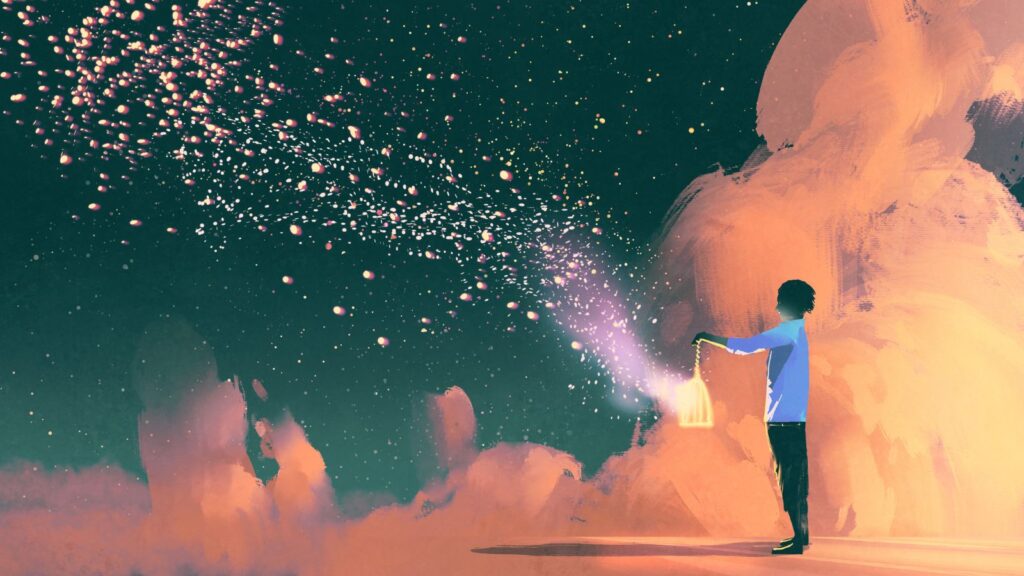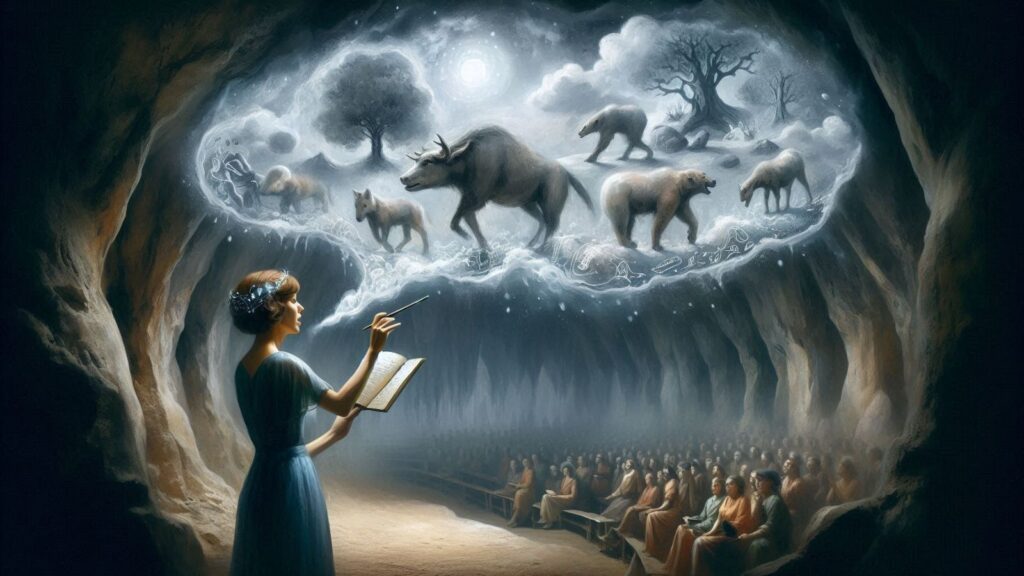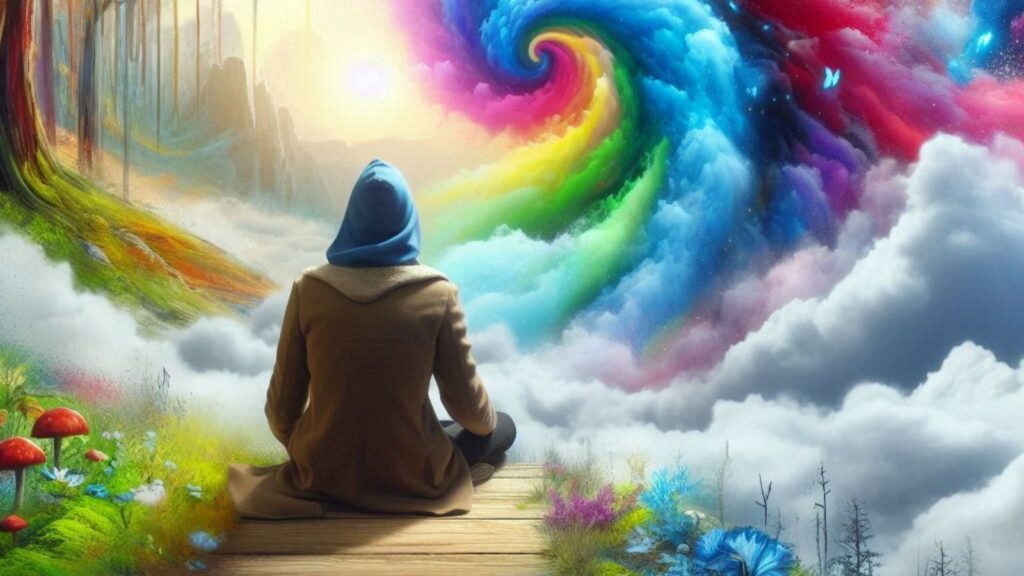As comedian and philosopher Bill Hicks said so eloquently, “All matter is merely energy condensed to a slow vibration, that we are all one consciousness experiencing itself subjectively. There is no such thing as death – life is only a dream – and we are the imagination of ourselves.”
The current experience of “reality” accepted by most of humankind is the “physical reality” perceived by our five senses and provable by science, regulated by government and limited by societal conditioning and beliefs.
Breaking free of these conditioned limitations and beliefs allows us to evolve individually, expand our consciousness, experience our true creative power and transform our society. I propose a new and expanded concept of reality called “Experiential Reality.”
“Reality” in everyday usage means “the state of things as they actually exist.” However, the vast majority of what we experience as reality is imagined. Our physical “reality” is created by converting sensory data into an imagined physical experience. We firmly believe that our experience of life is real, physical and solid, yet there is widespread support among scientists, such as physicist Fred Alan Wolf, Ph.D. that “We have the illusion that our human bodies are solid, but they are over 99.99% empty space.”
The term “Experiential Reality” includes the totality of everything that we experience, whether it is physical — observable, verifiable, comprehensible or provable by science — or etheric. .
For example, a mirage is not “real,” but we see it as real. A dream is generally not considered real, yet we experience it as real while dreaming it. A hologram looks 3D, while it is actually flat. And a movie appears to be moving, yet it is actually a series of still photographs.
While science has contributed innumerable benefits to human life, in modern society there is often a tendency to disregard as false or non-existent anything that cannot be scientifically proven. However, there are many things that science cannot prove. . .
Existential Truth – Science can’t prove that we actually exist or that our entire physical reality isn’t just consciousness imagining itself.
Moral Truth – Science can’t prove the morality of any action such as giving a donation to charity is good or that murder is evil.
Logical Truth – Science can’t prove “truth” because it relies upon the systems, tools and logic of humans and upon the assumption that our logic is the truth.
Experiential Truth – Science can’t prove that anyone loves another. There is no scientific test that can prove a subjective experience of nuanced emotion.
There are many aspects of life we experience that are far beyond our knowledge and the evidentiary methods of science. For example, most of us have experienced love, yet science can’t prove love exists.
As Carl Sagan said, “We live in a society exquisitely dependent on science and technology, in which hardly anyone knows anything about science and technology.”
In the Buddhist view, the shared world of perceived and imagined realms are both considered illusions created by thought, whereas, the non-dual, never changing, silence and stillness is the only non-illusory state of being. If “silence and stillness” is a “state of being,” then when it is referred to as such, we use our imagination to create a conceptual state of being that is silent and still.
Some schools of thought in Buddhism (e.g., Dzogchen), consider “perceived reality” as literally unreal. As a prominent contemporary teacher, Chögyal Namkhai Norbu, puts it: “In a real sense, all the visions that we see in our lifetime are like a big dream.”
In his famous dream, Zhuangzi (396 BCE), the famous Chinese philosopher, dreamt he was a butterfly, flitting and fluttering around, happy with himself and doing as he pleased. He didn’t know he was Zhuangzi. Suddenly he awakened and there he was, solid and unmistakably Zhuangzi. But he didn’t know if he was Zhuangzi who had dreamt he was a butterfly, or a butterfly dreaming he was Zhuangzi.
This story illustrates the thin veil between our “physical reality” and the world created in our imagination and dreams. In our physical reality, we receive data from our senses and create our world through synthesis of perception, imaginative construction and interpretation. The totality of all we experience, whether “real” or “imagined” is our “Experiential Reality.”
From the work of Piaget, perceptions depend on the worldview of a person. The worldview is the result of arranging perceptions into context by imagination. It has also been proposed that the whole of human cognition is based upon imagination. That is, anything we cognitively perceive is a synthesis of sensory perception and imagination. In other words, nothing in our awareness exists without imagination.
According to Albert Einstein, “The true sign of intelligence is not knowledge but imagination.” By continually challenging the status quo and using his imagination, Einstein came to defy the intellectual standard set by the scientific and academic communities of his time. He often questioned existing realities and theories and, by doing so, was able to see beyond what was considered commonly accepted, and expanded the limits of human knowledge.
Einstein, who possessed great knowledge and imagination, said of the two, “Imagination is more important than knowledge. For knowledge is limited to all we now know and understand, while imagination embraces the entire world, and all there ever will be to know and understand.”
Imagination is the window into the infinite universe. Free of the boundaries of linear space and time, and cause and effect, imagination provides us the power to create “realities” where anything is possible. Aside from the creation of non-physical “realities,” imagination is responsible for every invention, technology, design, piece of art or music and manufactured product, we have in our world – from a simple bowl to the printing press to Beethoven’s 5th to the space shuttle – they all came from imagination.
When we allow the imagination to become a real and powerful force in our life, we enter the realm of “Experiential Reality” where the perceptive veils of separation between the worlds of physical “reality” and imagination dissolve and potential of unlimited powers of manifestation and performance are unleashed.
We can actually alter our physical reality by using our imagination. For instance, when we have sexual fantasies and our bodies become aroused, we are actually experiencing the stimulation in our bodies even though we are not actually having sex. The somatic-mental-energetic feedback loop enhances the reality of the experience as our minds become more excited as our bodies become more aroused building the sexual energy and tension.
Even though a scenario is imagined, we actually experience the emotions and feelings resulting from our imagined reality in our body right now as if the scenario were actually happening. Our bodies experience bio-chemical-energetic shifts in the present time that are perceptively real as a result of imagination.
As another example, let’s imagine a future circumstance, such as asking an investor to invest in a company you want to start. If you imagine the investor giving you the money, telling you what a great idea you have and showing great confidence in the success of your company, you would most likely experience the emotions of happiness, excitement and courage and be motivated to contact the investor. However, if you imagine the investor telling you that your idea is foolish and will never make it and is livid about you asking for an investment, your present emotional state is likely to be disappointment, rejection, fear and anxiety and you would be more reluctant to contact the investor.
The way you imagine your life actually impacts your reality and the physical world. The imagination is very powerful in creating our reality. When we are in fear and limitation, we use our imagination in a manner that creates more fear and limitation. When we are in love and abundance, we create more love and abundance. The mind is like a fertile garden. If we plant seeds of poison, poisonous plants will grow. If we plant seeds that are nutritious and beautiful, nutritious and beautiful plants will grow. It is therefore important to use the power and impact of our imagination, in a disciplined manner that turns our visions into physical realities that enhance the quality of life for people and planet.
Using our imaginations to create Experiential Reality, we become co-creators of our experience with the universe. We transform ourselves from enslaved physical machines to creative Gods. When our imagination and physical reality become embodied as Experiential Reality, the divide between imagination and physical reality dissolves and we gain a very powerful tool for manifesting the life of our dreams. By expressing our embodied Experiential Reality through visualization, declaration and consistent action, our Experiential Reality transforms into our physical reality and our physical reality transforms in alignment with our Experiential Reality.
For example, Napoleon Hill, the author of “Think and Grow Rich,” found that using one’s imagination, focusing the mind, having a definite purpose and taking action were the most important fundamentals of success. According to Hill. . .
“All the breaks you need in life wait within your imagination; Imagination is the workshop of your mind, capable of turning mind energy into accomplishment and wealth.
“Cherish your visions and your dreams as they are the children of your soul, the blueprints of your ultimate achievements.”
Because we are interconnected with each other, our planet, and the entire cosmos as divine creators of reality, what we experience has an incremental rippling effect throughout the perceived physical universe. The more we are able to master the awesome power of, and responsibility for, our Experiential Reality, the more rapidly we can use our divine creative abilities to transform our world.
In our imaginations, we have a direct access to the infinite creative potential of the universe allowing us to freely, easily and instantaneously create any experience we choose. One of the greatest gifts we can give ourselves and humanity is to fully embrace our imagination and create a new Experiential Reality for humankind.
Image by Juliana Couthino, courtesy of Creative Commons licensing.















